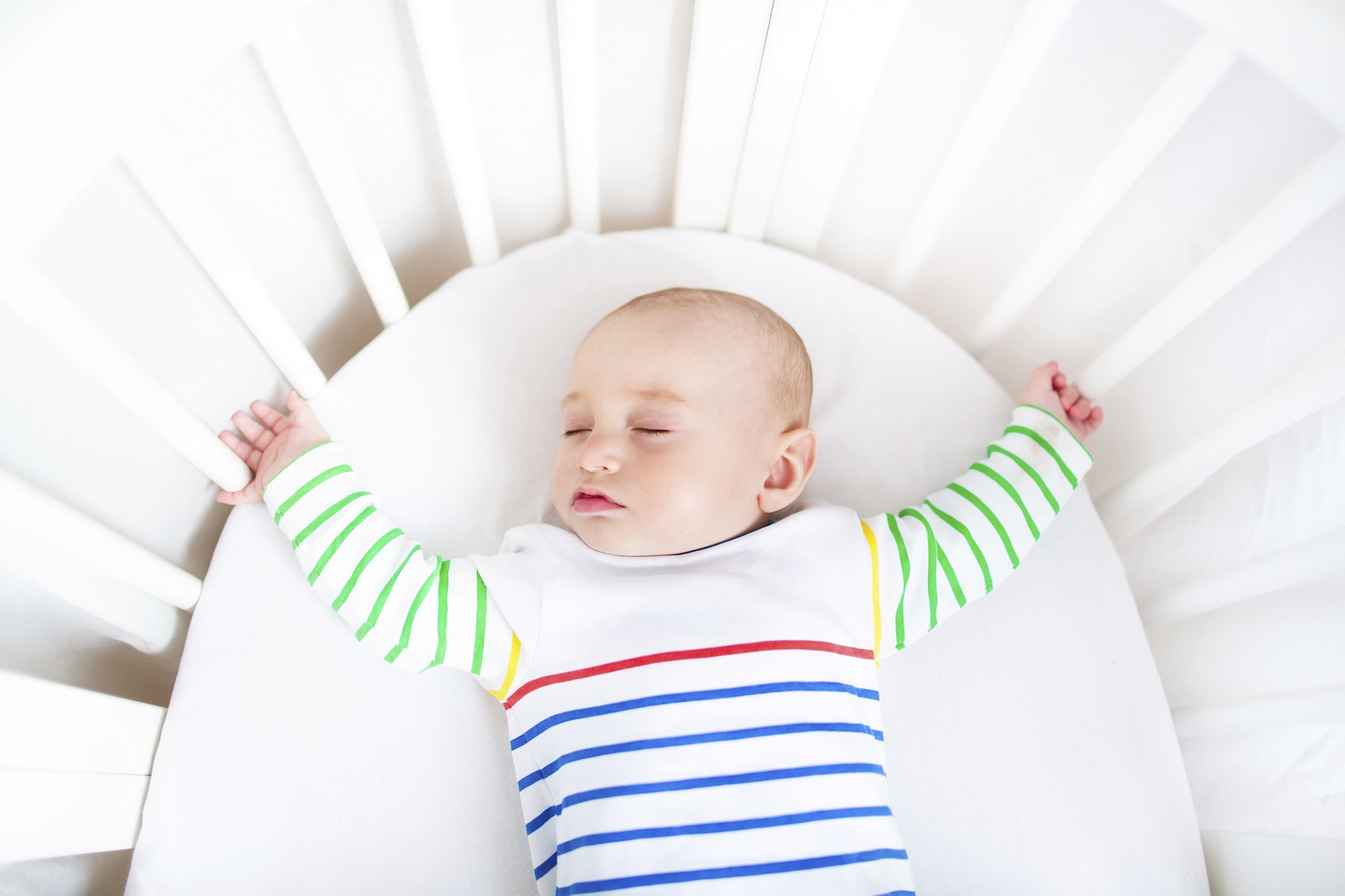Another study shows parents of newborns don’t always follow safe sleep recommendations

Follow me on Twitter @drClaire
If you ask parents of newborns what the recommendations for safe sleep for infants are, most can recite the “safe sleep rules”: put your baby to sleep on his back, by himself, on a firm surface with no loose bedding (preferably nothing in the crib but Baby).
But just because they know doesn’t mean they do it.
In a study released last week in the journal Pediatrics, researchers videotaped parents and babies in their homes at night, as part of a study on how parenting affects infant sleep routines. The parents knew they were being videotaped — they agreed to the study — and yet lots of them broke the Safe Sleep Rules.
At one month:
- 21% of the infants were put to sleep on an unsafe surface
- 14% were not put to sleep on their back
- 91% had stuff in the crib, such as bedding, bumper pads, pillows, stuffed animals, or sleep positioners
- 28% moved to a different sleep space during the night, often to sleep with a parent.
At three months:
- 10% were put to sleep on an unsafe surface
- 18% were not put to sleep on their back
- 87% had stuff in the crib
- 18% moved somewhere else during the night.
At six months:
- 12% were put to sleep on an unsafe surface
- 33% were not put to sleep on their back
- 93% had stuff in the crib
- 12% moved somewhere else during the night.
This isn’t really surprising. Previous studies have shown similar results. A study published about a year ago showed that more than half of parents don’t follow all the recommendations.
The main reason we have this recommendation is to prevent Sudden Unexplained Infant Death (which includes Sudden Infant Death Syndrome, or SIDS). It’s rare — it happens to about 100 out of every 100,000 infants — and perhaps because it’s rare, many parents simply think it’s not going to happen to their baby. Odds are they are right — but given that these safe sleep rules can make a real difference, does it truly make sense to play the odds when your child’s life could be at stake?
The most common rule broken was the “nothing in crib” rule. Many parents may simply feel like their babies need blankets and other bedding; after all, it’s hard for most of us to imagine sleeping on a bare mattress. But babies really don’t need bedding — and again, is it worth risking your baby’s life for the sake of a blanket?
I think it’s important, too, not to underestimate the power and impact of sleep deprivation when it comes to newborn babies — who are, let’s face it, terrible sleepers who routinely wake up their parents every few hours. While this works well for Baby, it can be incredibly exhausting for parents used to getting eight hours of sleep. It’s understandable that many parents might feel like desperate times call for desperate measures, and simply give up when their baby hates sleeping on her back or only seems to sleep when she is on her father’s chest.
I get it. But not only can most babies be taught to sleep on their backs and alone, these desperate times will pass. The sleep deprivation is real, but doesn’t last forever. We pediatricians didn’t create these rules to be mean; they come from years of research, and are meant to keep your baby safe — and alive.
About the Author

Claire McCarthy, MD, Senior Faculty Editor, Harvard Health Publishing
Disclaimer:
As a service to our readers, Harvard Health Publishing provides access to our library of archived content. Please note the date of last review or update on all articles.
No content on this site, regardless of date, should ever be used as a substitute for direct medical advice from your doctor or other qualified clinician.












